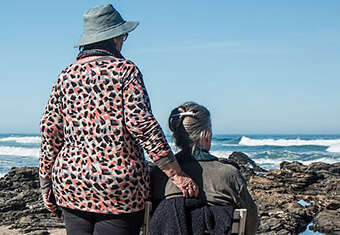Many people believe that there is such a thing as a ‘common-law marriage’, where couples in a long-term relationship acquire equivalent rights to people who are married. But this ‘common-law marriage’ is a myth: only couples who are married or in civil partnerships have legal rights and responsibilities.
‘Common law marriage’ is not recognised by the law of England & Wales or Northern Ireland. So you need to be married, or in a civil partnership, to rely on the law for dividing up finances if you split up, or if one of you dies. It makes no difference if you have a child with the person you live with.
If you are living with your partner, you are known as a ‘cohabitee’, and you should consider your position in the circumstances described below.
We currently rent our home. Do I have any rights if we break up?
If you are living with your partner but are not named in the rental agreement, you have no legal right to stay if he or she asks you to leave.
My partner owns our home. Do I have any rights if we break up?
If your partner owns the home and asks you to leave, you have no right to stay. If there are any savings or possessions that have been acquired with your partner’s money, you will not be legally entitled to share or take them with you.
If we break up, is our child protected?
Your child will be entitled to child maintenance from your ex if you break up. However, as a former partner you have no rights yourself, so you will not be entitled to anything.
Is there anything I can do to protect myself?
Yes there is. If you are renting or sharing with your partner, you can arrange a cohabitation agreement. This will stipulate how money and property should be divided if you break up, and how any children will be cared for. A legal advisor will be able to draw up a simple agreement for you both at a reasonable cost.
What if my partner dies?
If your partner dies, you have no rights to his or her money and property unless a will was made, stipulating who should receive what.
If you held the property as joint tenants, the property will pass automatically to you on your partner’s death. However, if it was in his or her sole name, or you were tenants in common, you have no legal entitlement to it.
You may be able to apply to the court for some financial support (known as financial provision) if you were dependent upon your partner; but bear in mind this type of court application is uncertain and sometimes costly.
You should consider making wills and reviewing your property ownership for peace of mind.
Do I have any rights in Scotland?
Scotland updated its law with the Family Law (Scotland) Act 2006 to reflect the number of couples who do not get married or enter into civil partnerships, and also extended it to same-sex couples.
It introduced a basic set of rights for people living together, or if one of them dies, but these are not the same as for couples who are married. The following provisions were made for cohabitees:
- Both parents will need to provide financially for their children following a break up.
- If a cohabitee dies without leaving a will, the surviving partner can apply to the Scottish court for financial provision.
- If one partner has been disadvantaged financially while living together, e.g. not working to look after a child, they can ask the court to consider some financial provision.
- If cohabitees have acquired household possessions while living together, these are assumed to be joint possessions. If the cohabitees cannot agree on them, they shall be shared or sold and divided equally.
There are various other provisions that a Scottish legal advisor will be able to explain to you as a cohabitee.
If you are a cohabitee in England & Wales or Northern Ireland then you should take advice from a local advisor about how you can protect yourself financially.
 UK
UK  Canada
Canada



